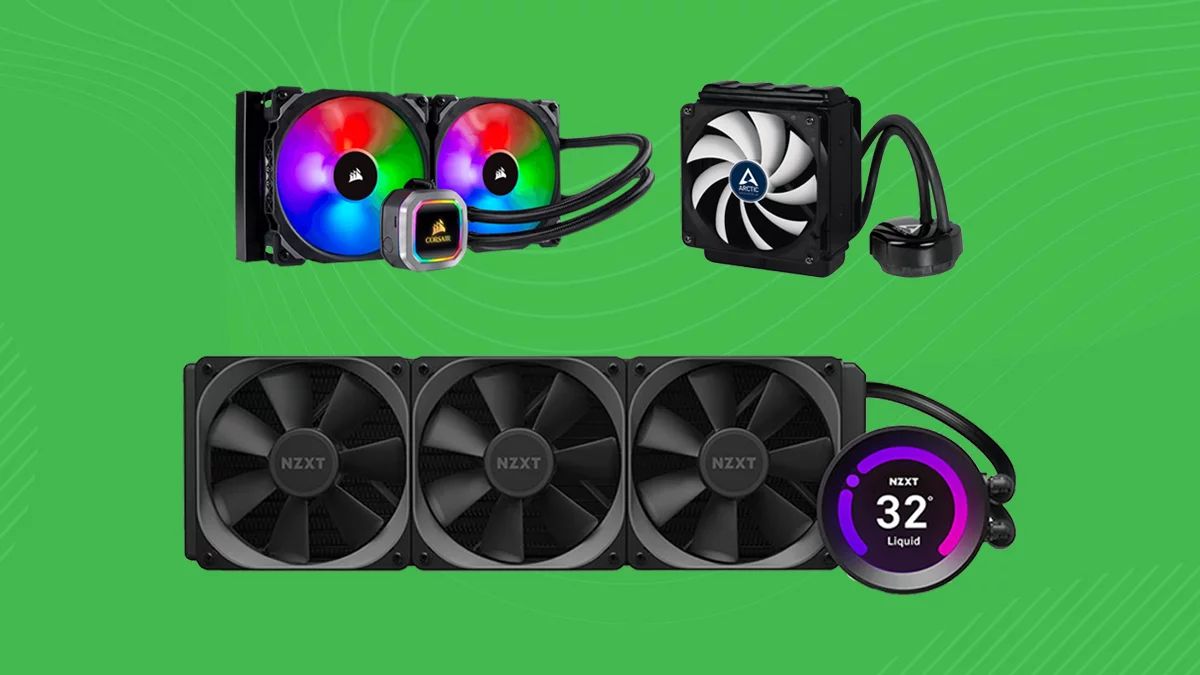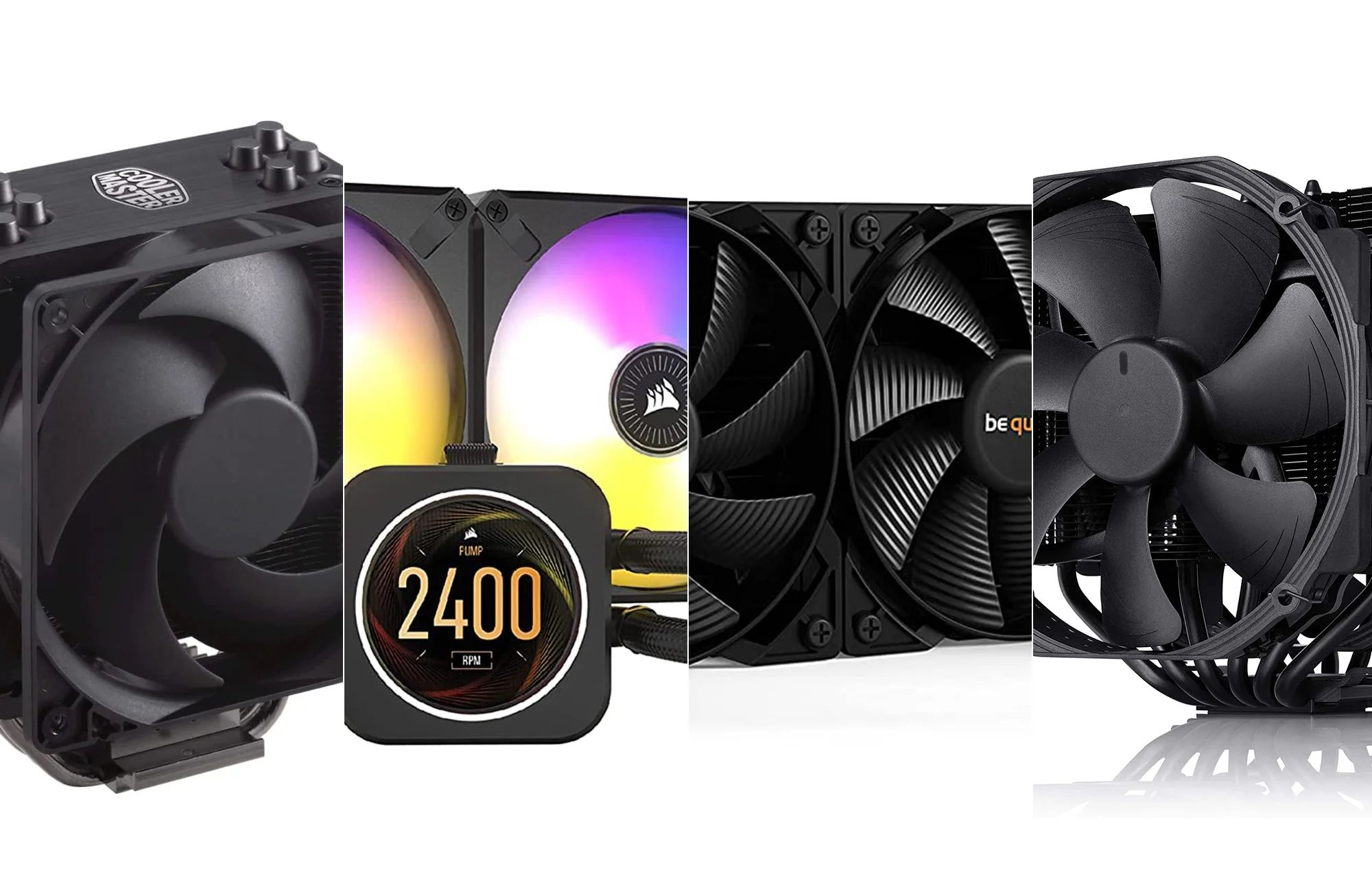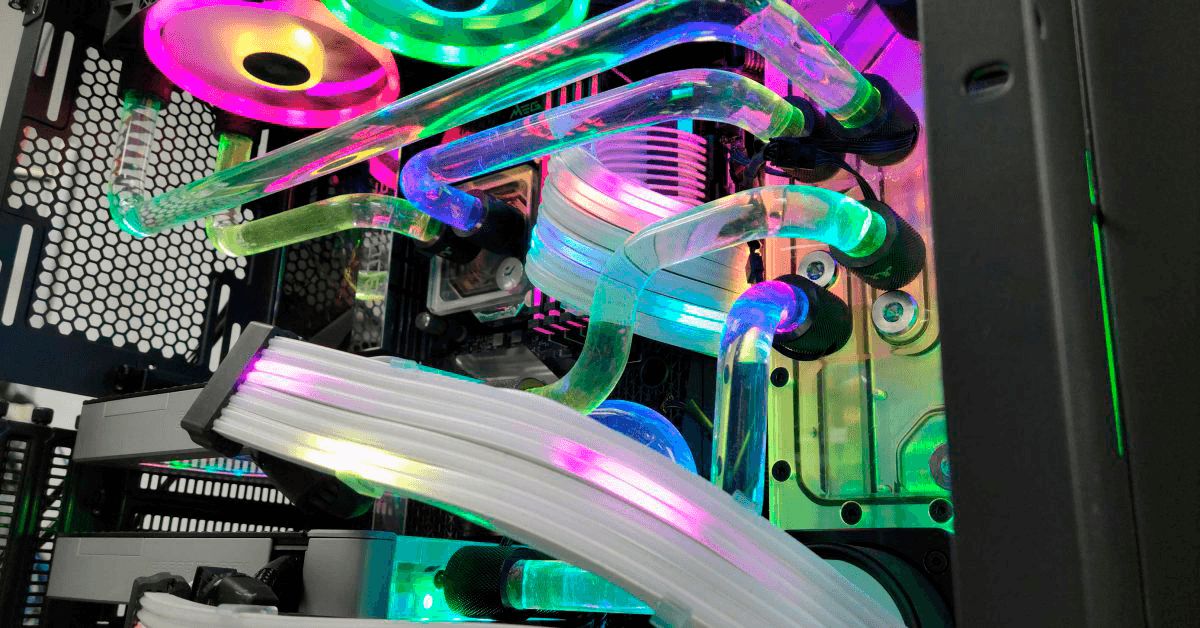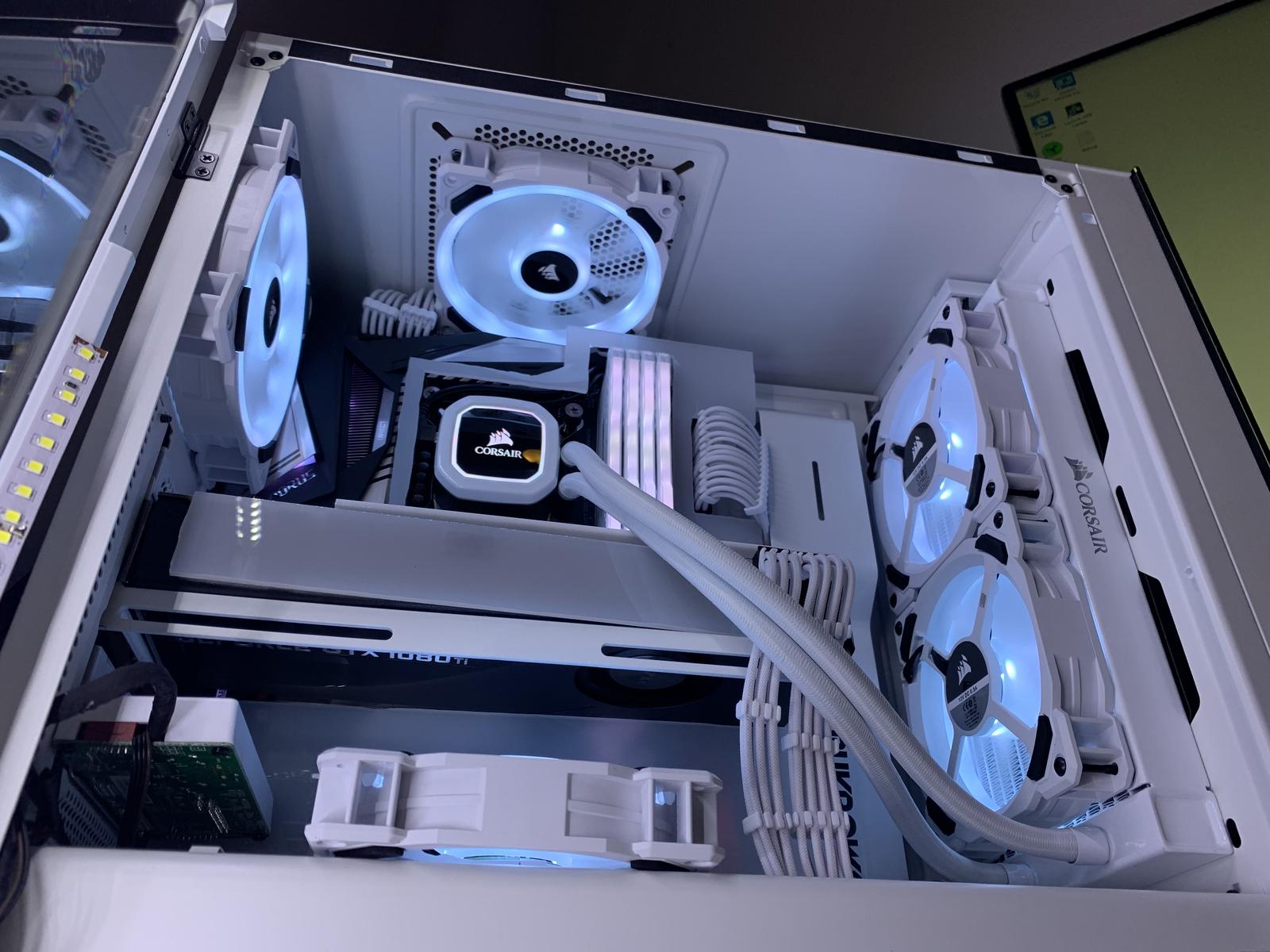Introduction
Welcome to the world of CPU coolers, where efficient heat management is the key to maintaining optimal performance and preventing overheating. When it comes to cooling your central processing unit (CPU), two popular options dominate the market: liquid CPU coolers and fan CPU coolers. Each type has its own set of advantages and disadvantages, making the decision of which one to choose a matter of personal preference and specific cooling needs.
In this article, we will explore the differences between liquid CPU coolers and fan CPU coolers, examining their functionality, pros, and cons. Whether you are an avid gamer, a content creator, or simply someone looking to keep their computer running at its best, understanding the benefits and limitations of these cooling solutions is essential.
By the end of this article, you will have a clearer understanding of whether a liquid CPU cooler or a fan CPU cooler is the best choice for your specific requirements, allowing you to make an informed decision.
Liquid CPU Cooler
A liquid CPU cooler, also known as an all-in-one (AIO) cooler, is a cooling solution that uses a combination of liquid coolant and a pump to dissipate heat from your CPU. Unlike fan CPU coolers, which rely on air circulation, liquid CPU coolers provide more efficient cooling by transferring heat away from the CPU through liquid in a closed loop system.
The liquid coolant, usually a mixture of water and anti-corrosion additives, is contained within tubes that connect the CPU block to the radiator. The pump circulates this coolant, carrying the heat away from the CPU and towards the radiator, where the heat is dissipated through the use of fans.
One of the primary advantages of a liquid CPU cooler is its ability to offer superior cooling performance. The use of liquid allows for more effective heat transfer compared to air, resulting in lower CPU temperatures and increased overclocking potential. Liquid CPU coolers are also known for their quiet operation, as the radiator fans typically run at lower speeds compared to those of fan CPU coolers.
Another benefit of liquid CPU coolers is their versatility, as they are available in various sizes to accommodate different PC builds. The compact design of AIO coolers makes them suitable for small form factor cases, where space may be limited.
However, it is important to note that liquid CPU coolers also have some downsides. One of the main concerns is the potential for leaks, although this risk is relatively low with high-quality AIO coolers. Additionally, liquid CPU coolers tend to be more expensive than fan CPU coolers, making them a less budget-friendly option.
How Liquid CPU Cooler Works
Understanding how a liquid CPU cooler works is essential for grasping its effectiveness in dissipating heat from your CPU. The process starts with the CPU block, a metal plate with a copper or aluminum base that directly contacts the CPU. The block is equipped with a pump, which is responsible for circulating the liquid coolant.
When the CPU generates heat through its intensive processing tasks, the heat is absorbed by the CPU block. The pump then pushes the liquid coolant through the tubes, carrying the heat away from the CPU. The hot liquid flows towards the radiator, which is mounted in the PC case. The radiator consists of a series of thin, metal fins that provide a large surface area for heat dissipation.
To enhance the cooling efficiency, there are fans attached to the radiator. These fans draw cool air from the surrounding environment and blow it across the radiator fins. As the air passes through the fins, it absorbs the heat from the liquid coolant, effectively cooling it down. The now cooler liquid is then pumped back to the CPU block to repeat the cycle.
This closed loop system ensures a continuous flow of liquid coolant, keeping the CPU temperature within desirable limits. The efficiency of a liquid CPU cooler depends on factors such as the size of the radiator, the number and quality of the fans, and the effectiveness of the pump in maintaining a steady flow rate.
Overall, this innovative mechanism allows liquid CPU coolers to offer excellent thermal performance and keep your CPU operating at lower temperatures, even during the most processor-intensive tasks.
Pros of Liquid CPU Cooler
Liquid CPU coolers offer several advantages over their air-based counterparts, making them a popular choice among enthusiasts and performance-oriented PC users. Here are some of the key benefits of using a liquid CPU cooler:
- Superior Cooling Performance: Liquid CPU coolers have the ability to dissipate heat more efficiently than fan CPU coolers. The liquid coolant transfers heat away from the CPU faster, resulting in lower CPU temperatures and better overall cooling performance.
- Quiet Operation: Liquid CPU coolers typically operate more quietly than fan coolers. The fans used in liquid cooling systems often run at lower speeds, generating less noise while still delivering effective cooling performance.
- Overclocking Potential: Thanks to their superior cooling capabilities, liquid CPU coolers are ideal for overclockers who want to push their CPUs beyond their stock speeds. Lower temperatures provided by liquid cooling allow for more stable overclocks and better performance.
- Sleek and Compact Design: All-in-one (AIO) liquid coolers come in a compact design, making them suitable for various PC builds. Their sleek and minimalistic appearance adds a visually appealing touch to the system, especially when combined with RGB lighting options.
- Versatility: Liquid CPU coolers are available in different sizes, ranging from compact 120mm radiators to larger 360mm radiators. This versatility allows users to choose a cooler that fits their specific case size and airflow requirements.
- Reduced RAM Clearance Issues: Some high-performance air coolers can cause clearance issues with taller RAM modules. Liquid CPU coolers eliminate this problem as they are usually designed with low-profile CPU blocks that do not interfere with RAM modules.
These advantages make liquid CPU coolers an attractive option for those seeking efficient cooling and optimal performance for their CPUs. However, it is important to weigh these benefits against the potential drawbacks and consider individual cooling needs before making a final decision.
Cons of Liquid CPU Cooler
While liquid CPU coolers have many advantages, it is important to consider the potential downsides before deciding if it is the right cooling solution for your system. Below are some of the disadvantages associated with liquid CPU coolers:
- Possible Leak Risks: Although rare, there is always a small risk of leaks in liquid cooling systems. A leak can cause damage to other components if the liquid comes into contact with sensitive areas of the motherboard or other hardware.
- Higher Cost: Liquid CPU coolers are typically more expensive than air coolers. The additional cost is due to the advanced technology and components involved in their construction, such as the pump, radiator, and tubing.
- Installation Complexity: Compared to air coolers, liquid CPU coolers can be more challenging to install. The installation process involves mounting the radiator, securing the CPU block, and connecting the tubing, requiring more time and precision.
- Limited Lifespan: The liquid coolant used in AIO coolers may degrade over time, which can affect the cooling performance. While the lifespan of a liquid CPU cooler can vary, typically, it is recommended to replace the cooler after five to six years to ensure optimal cooling efficiency.
- Need for Adequate Case Space: Liquid CPU coolers require enough space in the PC case to accommodate the radiator and fans. In smaller cases or systems with restricted airflow, the installation of a liquid cooler may not be possible or may hinder overall airflow.
- Reduced RAM Flexibility: Some liquid CPU coolers feature larger CPU blocks that can obstruct RAM slots, limiting the compatibility with taller RAM modules. It is crucial to ensure compatibility between the cooler and RAM modules when considering a liquid CPU cooler.
While these drawbacks should be considered, it is important to note that many of these concerns can be mitigated by choosing a high-quality liquid CPU cooler from a reputable manufacturer and following proper installation and maintenance guidelines.
Fan CPU Cooler
A fan CPU cooler, also known as an air cooler, is a popular cooling solution that relies on air circulation to dissipate heat from the CPU. It consists of a heat sink, which is attached to the CPU, and one or more fans that help dissipate the heat. Fan CPU coolers are widely available and come in a variety of sizes and designs to suit different PC builds and cooling needs.
The heat sink is made of metal, usually aluminum or copper, and features an array of fins or heat pipes that increase the surface area for heat dissipation. The heat generated by the CPU is transferred to the heat sink, which then disperses the heat into the surrounding air. The fans attached to the heat sink help to accelerate the airflow, facilitating the cooling process.
Fan CPU coolers offer several advantages that make them a popular choice among PC enthusiasts:
- Affordability: Fan CPU coolers are generally more affordable than liquid CPU coolers. They provide cost-effective cooling solutions without compromising on performance.
- Reliability: Fan CPU coolers have a simpler design and fewer moving parts than liquid coolers, making them less prone to failure. This can result in greater reliability and a longer lifespan.
- Simplicity of Installation: Installing a fan CPU cooler is often easier and less time-consuming compared to liquid coolers. It involves attaching the heat sink to the CPU socket and securing it with brackets or screws.
- Wide Compatibility: Fan CPU coolers are compatible with a wide range of CPU sockets, making them suitable for both Intel and AMD processors. This versatility ensures compatibility with various PC configurations.
- No Risk of Leakage: Unlike liquid coolers, fan CPU coolers do not use liquid coolant, eliminating the risk of leaks that could damage other components of the system.
- Less Space Requirements: Fan CPU coolers take up less space in the PC case compared to liquid coolers. This can be advantageous for compact or smaller form factor builds with limited clearance.
These advantages make fan CPU coolers a reliable and cost-effective solution for most users. However, it is important to consider the cooling demands of your CPU and the overall airflow inside your PC case before making a final decision.
How Fan CPU Cooler Works
A fan CPU cooler, also referred to as an air cooler, is a cooling solution that utilizes airflow to dissipate heat from the CPU. Understanding how a fan CPU cooler works can help you appreciate its effectiveness in keeping your CPU cool and functioning optimally.
The core component of a fan CPU cooler is the heat sink. It is typically composed of metal, often aluminum or copper, and is in direct contact with the CPU. The heat sink features a dense array of fins or heat pipes, which increase the surface area available for heat dissipation.
When the CPU generates heat through its tasks, the heat is conducted to the heat sink. The heat sink’s large surface area allows for efficient heat transfer from the CPU to the surrounding air. However, for effective heat dissipation, a fan or multiple fans are essential.
These fans are mounted on top of or attached to the heat sink and operate by generating airflow over the fins or heat pipes. The airflow creates a cooling effect, which absorbs the heat from the heat sink and carries it away. As the fans rotate, they draw cooler air from the surrounding environment and push it towards the heat sink, enhancing the cooling process.
In addition, some fan CPU coolers employ heat pipes as an additional heat transfer mechanism. These heat pipes are typically made from copper and are filled with a liquid coolant. The heat pipes absorb the heat from the CPU and transfer it to the fin stack, where the fans blow air through, further dissipating the heat.
The effectiveness of a fan CPU cooler is influenced by factors like the airflow generated by the fans, the speed at which the fans rotate, and the overall design and quality of the heat sink. Cooler operation can be achieved by increasing the number of fans, using larger and more efficient fans, or upgrading to a higher-performance heat sink.
It’s essential to note that the efficient functioning of a fan CPU cooler depends on optimal airflow within the PC case. Proper case ventilation, intake, and exhaust fans contribute to maintaining a balanced temperature, ensuring that the fan CPU cooler can effectively dissipate the CPU’s heat.
Overall, fan CPU coolers are a reliable cooling solution, leveraging the principles of airflow and heat transfer to keep your CPU operating within safe temperature limits.
Pros of Fan CPU Cooler
Fan CPU coolers, also known as air coolers, offer several advantages that make them a popular choice among PC users. Here are some of the main benefits of using a fan CPU cooler:
- Cost Effectiveness: Fan CPU coolers are generally more affordable than liquid coolers, making them a cost-effective cooling solution for many users.
- Simplicity and Ease of Installation: Installing a fan CPU cooler is typically straightforward and requires minimal technical expertise. It involves securing the heat sink onto the CPU socket and attaching the fan(s) to the heat sink.
- Reliability and Longevity: Fan CPU coolers have a simple design with fewer moving parts, reducing the risk of failure. This reliability often translates to a longer lifespan compared to more complex cooling solutions.
- Compatibility: Fan CPU coolers are compatible with a wide range of CPU sockets, making them suitable for various PC configurations. These coolers can be used with both Intel and AMD processors.
- No Leakage Concerns: Unlike liquid coolers, fan CPU coolers do not utilize liquid coolant, eliminating the risk of leaks that could damage other components of the system.
- Space Efficiency: Fan CPU coolers are generally compact and take up less space in the PC case compared to larger liquid coolers. This makes them ideal for systems with limited clearance or smaller form factor builds.
- Low Maintenance: Fan CPU coolers typically require minimal maintenance. Regular cleaning to remove dust buildup from the heat sink and fans will ensure optimal performance and longevity.
These advantages make fan CPU coolers a popular choice for users who prioritize cost-effectiveness, reliability, and ease of installation. They are suitable for a wide range of PC configurations, making them a versatile and accessible cooling solution for many PC enthusiasts and casual users alike.
Cons of Fan CPU Cooler
While fan CPU coolers have numerous benefits, it is important to consider their potential drawbacks before deciding if they are the right cooling solution for your system. Here are some of the cons associated with fan CPU coolers:
- Lower Cooling Efficiency: Fan CPU coolers generally have lower cooling efficiency compared to liquid coolers. This is due to the limitations of air-based cooling systems when it comes to dissipating heat, especially during extreme loads or overclocking scenarios.
- Noisier Operation: Fan CPU coolers require fans to generate airflow, and these fans can sometimes produce noise, especially when running at higher speeds. This noise level may not be suitable for users who prioritize quieter PC operation.
- Space Constraints: Fan CPU coolers with large heat sinks or multiple fans may have space constraints in certain PC cases. It is essential to ensure that the cooler’s dimensions and design are compatible with your case and other components to avoid installation issues.
- Height Limitations: Some fan CPU coolers can be tall and may interfere with taller RAM modules or obstruct PCI Express slots. It is crucial to ensure that the chosen cooler provides adequate clearance for other components in your system.
- Heat Distribution in the Case: Fan CPU coolers rely on air circulation within the PC case to draw in cool air and expel heated air. In systems with poor case ventilation or inadequate airflow, heat can accumulate, potentially affecting the overall temperature of other components.
- Less Overclocking Potential: Due to their lower cooling efficiency compared to liquid coolers, fan CPU coolers may have limitations when it comes to overclocking. They might not be able to handle high overclocks or sustain lower temperatures required for stable overclocked performance.
- Less Aesthetic Appeal: Many high-performance fan CPU coolers focus on functionality rather than aesthetics. They may lack the visual appeal of liquid coolers with their sleek designs, RGB lighting, and transparent tubes.
These considerations should be taken into account when deciding between a fan CPU cooler and other cooling solutions. Ultimately, it is crucial to find the balance between cooling performance, noise levels, compatibility, and other factors that align with your specific needs.
Liquid vs Fan CPU Cooler: Performance Comparison
When it comes to choosing between a liquid CPU cooler and a fan CPU cooler, performance is one of the primary factors to consider. Both types of coolers have their strengths and weaknesses in terms of cooling efficiency. Here is a performance comparison to help you understand the differences:
Liquid CPU Cooler:
Liquid CPU coolers are known for their superior cooling performance. The use of liquid coolant allows for efficient heat transfer from the CPU to the radiator, resulting in lower CPU temperatures. This increased cooling capability is especially beneficial for high-performance systems or when overclocking the CPU. Liquid coolers can effectively handle the heat generated by powerful processors and maintain stable temperatures even under heavy workloads.
Fan CPU Cooler:
Fan CPU coolers offer reliable cooling performance and are suitable for most mainstream usage scenarios. While they may not provide the same level of cooling efficiency as liquid coolers, they are still effective in dissipating heat. Fan coolers with larger heat sinks and high-quality fans can handle moderate to heavy workloads and maintain acceptable CPU temperatures. However, they may struggle to keep up with extreme loads or overclocking situations where a liquid cooler would excel.
The choice between a liquid CPU cooler and a fan CPU cooler ultimately depends on your specific cooling requirements and the intended use of your PC. If you prioritize maximum cooling performance and plan to overclock your CPU, a liquid cooler may be the better option. On the other hand, if you have moderate cooling needs or a limited budget, a fan CPU cooler can still provide adequate cooling performance.
It is important to note that the actual performance of a CPU cooler can vary depending on factors such as the quality of the components, the size of the cooling solution, the PC case’s airflow, and the ambient temperature. Therefore, it is recommended to thoroughly research and read reviews about specific models to gain a clearer understanding of their performance capabilities.
In summary, liquid CPU coolers offer superior cooling efficiency and are ideal for high-performance systems, overclocking, or users who demand the utmost cooling performance. Fan CPU coolers, while not as powerful as liquid coolers, provide reliable cooling performance and are more budget-friendly. Assessing your cooling requirements and understanding the limitations of each type will help you make an informed decision about which CPU cooler is best suited for your needs.
Considerations When Choosing Between Liquid and Fan CPU Cooler
When deciding between a liquid CPU cooler and a fan CPU cooler, it is essential to consider various factors to ensure that you make the right choice. Here are some key considerations to keep in mind:
- Cooling Performance Requirements: Assess your cooling needs based on your CPU’s power, usage patterns, and potential overclocking plans. If you have a high-performance CPU or engage in demanding tasks such as gaming or content creation, a liquid CPU cooler may provide better cooling performance. However, if you have a more moderate workload, a fan CPU cooler may be sufficient.
- Budget: Consider your budget for the CPU cooler. Liquid CPU coolers are typically more expensive than fan coolers due to their advanced technology and components. If cost is a limitation, a fan CPU cooler may be a more affordable option without compromising too much on performance.
- Pc Case Size and Clearance: Assess the available space in your PC case. Liquid CPU coolers require space for the radiator, tubing, and fans, which can be a constraint in smaller cases. Fan CPU coolers, on the other hand, are generally more space-efficient and may be suitable for compact builds. Ensure that the chosen cooler fits comfortably without interfering with other components.
- Aesthetic Preferences: Consider the visual appeal of your system. Liquid CPU coolers often come with sleek designs, RGB lighting options, and transparent tubing, adding to the overall aesthetics of your build. If aesthetics are a priority, a liquid cooler may be more appealing. Fan CPU coolers, while functional, may have a more utilitarian appearance.
- Noise Levels: Evaluate your tolerance for noise. Fan CPU coolers can generate noise, especially at higher fan speeds. If you prefer a quieter PC operation, liquid coolers are generally quieter due to their larger radiators and slower fan speeds.
- Installation Complexity: Consider your comfort level with PC assembly and installation. Liquid CPU coolers typically require more involved installation, including mounting the radiator, securing the CPU block, and connecting the tubing. If you are less experienced or prefer simpler installations, a fan CPU cooler may be easier to install.
- Maintenance: Reflect on your willingness to perform regular maintenance. Fan CPU coolers require periodic cleaning to remove dust buildup from the heat sink and fans, which can impact their performance. Liquid CPU coolers have less maintenance requirements, but you should still monitor for potential leaks or coolant degradation.
By considering these factors, you can weigh the advantages and disadvantages of both types of CPU coolers and make an informed decision that aligns with your specific needs, budget, and PC configuration.
Conclusion
When it comes to choosing a CPU cooler, both liquid CPU coolers and fan CPU coolers have their own advantages and considerations. The decision ultimately depends on your specific cooling needs, budget, PC case limitations, and personal preferences.
Liquid CPU coolers offer superior cooling performance, especially for high-performance CPUs or when overclocking. They efficiently transfer heat away from the CPU using liquid coolant, resulting in lower temperatures. Liquid coolers are also known for their quiet operation and sleek designs, which can enhance the overall aesthetics of your system. However, they tend to be more expensive, have potential leakage risks, and require more installation complexity.
Fan CPU coolers, on the other hand, provide reliable cooling performance at a more affordable price point. They are easier to install, require less space in the PC case, and have lower maintenance needs. However, fan coolers may have limitations in extreme cooling demands and overclocking scenarios. They can generate more noise and have a utilitarian appearance compared to the sleek design and RGB lighting options of liquid coolers.
When choosing between the two, consider your CPU’s cooling requirements, your budget, the available space in your PC case, and your aesthetic preferences. Assess factors such as cooling performance, noise levels, installation complexity, and maintenance needs to make an informed decision.
Remember that both liquid CPU coolers and fan CPU coolers have evolved over the years, offering improved performance and reliability. Whichever option you choose, ensure you select a reputable brand and model that meets your specific needs. Proper cooling is essential for maintaining your CPU’s longevity and performance, ensuring a stable and efficient computing experience.
By carefully considering these factors and your individual requirements, you can select the CPU cooler that best aligns with your needs and ensures optimal cooling for your system.

























